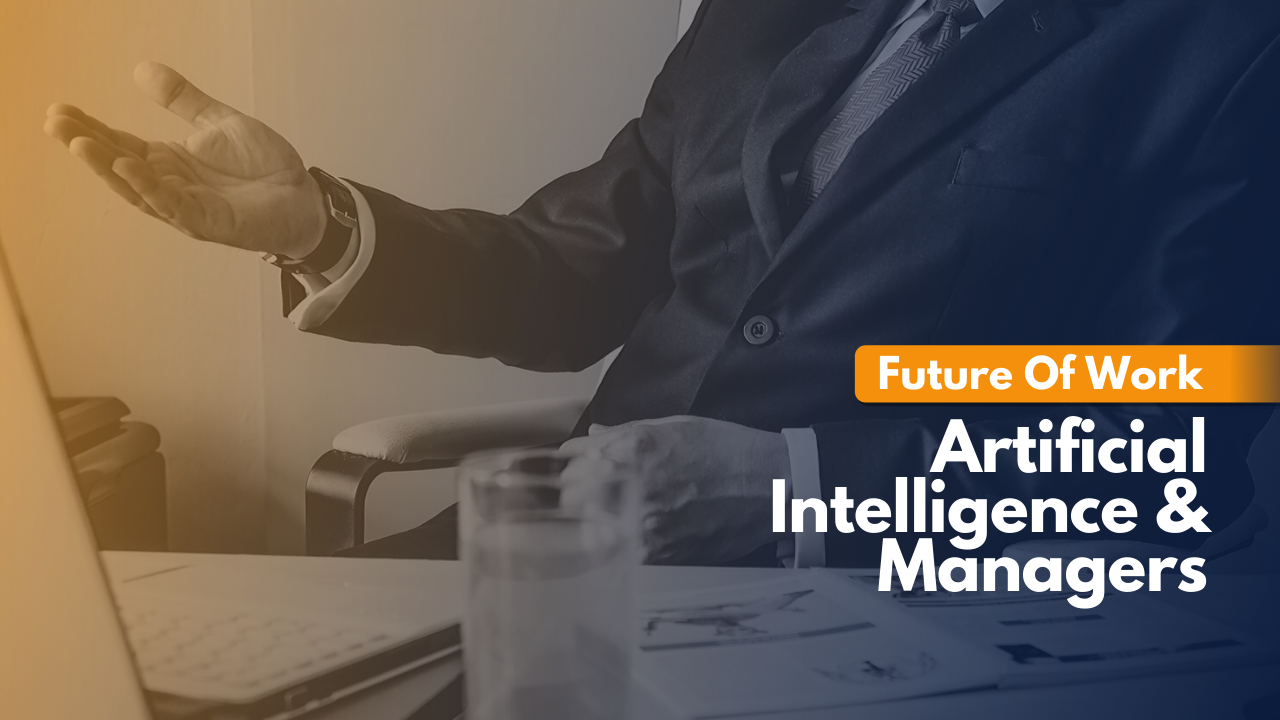- A recent report found that artificial intelligence is being increasingly used in business operations.
- The report also found that people are less unsure and fearful of AI and are warming up to the idea of using it in the workplace.
- AI use in the workplace will have huge implications for managers, whose role is shape-shifting as AI can better handle more administration-related coordination and control tasks.
Oracle & Future Workplace recently published the findings of their AI@Work 2019 Study. The report, titled “From Fear to Enthusiasm” found that artificial intelligence is winning more hearts and minds in the workplace.
New technologies are rapidly being embraced in business operations, including artificial intelligence (AI). By 2030 it’s predicted that AI could contribute up to a whopping $15.7 trillion to the global economy, of which $6.6 trillion will likely come from increased productivity. It’s no wonder then, that companies and employees alike are warming up to the idea of AI and robots in the workplace.
“As organizations eagerly embrace these new technologies, the relationship between human beings and machines in the workplace is undergoing major transformation.”
AI in the Workplace
Oracle and Future Workplace surveyed over 8,000 Human Resources leaders, managers, and employees across 10 countries to gauge their attitudes and behaviors regarding AI.
Currently, 50% of survey respondents are already using some form of artificial intelligence at work. Just last year (2018), that number stood at 32%. More importantly, however, is the fact that “people’s perceptions of these technologies–and how they interact with them–are changing as swiftly as the rate of adoption.”
Up until recently, talk about artificial intelligence and robots was typically met with fear, particularly how it would affect or potentially eliminate human jobs. This year, however, only 24% of respondents said they felt “unsure” about AI, a significant decrease from 38% last year. Moreover, such fears are not as prominent and the research found that “the majority of employees feel enthusiastic about these technologies,” with 38% of respondents using terms like amazed or excited when talking about AI.
– Emily He, Senior Vice President, HCM Marketing, Oracle
“People are no longer afraid of the robots. They have experienced how AI and machine learning can improve the way they work in a very pragmatic way. And the more they use these technologies, the more excited they are about them.”
The more companies embrace and workers use these technologies, the more likely they are to see the benefits and advantages that they offer. “AI has become more prominent in the workplace, suggesting readiness to embrace the technology and an ability to see its potential.”
AI Is Changing the Relationship Between People and Technology at Work
According to survey findings, 43% of managers, HR leaders, and employees say they are now excited about how AI will affect the future of work. People are much more comfortable with AI in the workplace than they were a year ago, with workers believing that AI can present them with important opportunities.
- 36% of respondents said that AI can create opportunities to master a new skill
- 46% of respondents believe that AI can help them gain more free time
- 28% of respondents believe AI can help expand their current role so it is more strategic
- 20% of respondents believe AI can help them have better and healthier work relationships
Interestingly, demographics make a difference in perceptions and behaviors towards AI. The survey found that Millennials are most excited about AI (31%), followed by Gen Z (24%) and Gen X (22%), with Baby Boomers coming in last place (14%); interestingly, the survey found that men are more excited and optimistic about AI than women.
People Trust Robots More than Their Managers
Not only is artificial intelligence changing the relationship between people and technology at work, it’s also changing the relationship between employees and their managers.
AI is “calling into question assumptions about who (or what) is more trustworthy for which types of tasks.” This year’s AI@Work Study found that workers now trust robots more than they trust their managers (at least when it comes to certain tasks and responsibilities).
82% of survey respondents said they think robots can do certain types of work better than their managers, with a whopping 64% saying they’d trust a robot more than their manager.
More strikingly, however, is the fact that “the employee/manager relationship may not just be shape-shifting; its very existence may be called into question.” 32% of surveyed employees said they believe robots will replace their managers.
Undoubtedly, this will have huge implications for managers, including how managers spend their time and how companies manage talent.
Time for a New Role for Managers
With the above in mind and considering people think managers and robots are good at different things, it might be time for managers to take on a new role.
Workers believe that robots are better than managers at providing unbiased information, maintaining work schedules, solving problems, managing a budget, and answering confidential questions without causing fear of scrutiny.
Managers, for their part, are believed to be better than robots at understanding feelings, coaching, creating and nurturing a work culture, evaluating team performance, and providing oversight and direction.
“These differences have important implications for how organizations can get the most value from line managers, as well as how they can best attract, retain, and develop talent. For instance, managers who let AI handle more administration-related coordination and control tasks may free up time, mental bandwidth, and energy to interact more directly with their employees.”
Freeing up manager’s time could help them build more high-performing teams.
AI Is Here to Stay, but It’s not a Done Deal
“There’s no doubt about it: When it comes to the workplace, AI is here to stay.” However, organizations need to address key concerns around AI so as to not be left behind.
The survey found that “the biggest barriers to adoption and use of AI in the workplace are concerns about complexity, security, and privacy,” with 71% of respondents saying that “they were ‘at least sometimes concerned’ that there will be more data-security breaches at their workplace owing to use of AI.”
Considering that the collection of data on employees and customers is one of the top ways AI is currently being used by organizations, these fears are well-founded. Similarly, 30% of respondents said that concerns about privacy prevent them from using AI at work.
Organizations need to address these fears in order to encourage their employees to feel comfortable using AI and AI recommendations.
Additionally, organizations need to ensure that the AI they implement is easy to navigate and user-friendly. People already have a hard time keeping up with and navigating technological changes, simplifying AI interfaces and making them easier to use could potentially increase the amount of people interacting with AI.
Keeping Up with AI
As use of the AI becomes more commonplace in the workplace, organizations need to make sure they address any concerns and clearly explain how they are using AI ethically in order to keep up with the pace of adoption.
“Organizations that move swiftly to encourage adoption of AI will be able to drive innovation and create new markets, as well as protect and expand their footprint in current markets.”


















